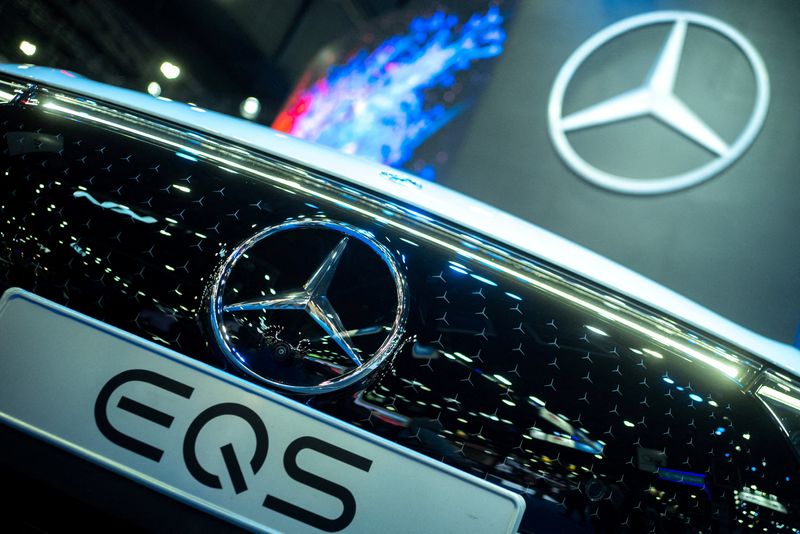Can anything shut down the Gold rally?
Investing.com -- Mercedes-Benz (ETR:MBGn) shares fell over 3% on Thursday after fourth-quarter results beat expectations, but a cautious full-year outlook and shrinking margins spooked investors.
The German automaker posted group revenues of €38.5 billion for the quarter, in line with consensus estimates, while adjusted EBIT came in 10% above projections at €3.5 billion.
The stronger performance was attributed to higher margins in the Cars division, which stood at 8.1% compared to the consensus of 7.8%. The company also benefited from a greater mix of high-end vehicle sales and consolidation effects.
The adjusted EBIT margin fell to 9.2% from 11% in the same period last year, reflecting a more challenging pricing environment and higher costs.
Despite a 16% year-over-year decrease, industrial free cash flow was a strong point, exceeding market forecasts by a substantial 37% at €2.9 billion.
Mercedes-Benz’s 2025 outlook presents a mixed picture. While the guidance was largely in line with expectations, it also raised concerns about slowing momentum.
On the one hand, industrial free cash flow is expected to be €6.9 billion, which, despite a projected 25% decline, is still better than the €6 billion consensus.
On the other hand, car margins are forecast at 6-8% (compared to a 7.1% consensus), and group EBIT is expected to decrease by at least 15% to €11.6 billion, slightly below market forecasts.
Mercedes-Benz has outlined strategic initiatives aimed at strengthening profitability, including cost-cutting measures and a shift towards direct sales channels to improve margins.
The company expects key model launches in 2025 and 2026, including a new CLA, an updated S-Class, and several battery-electric vehicles (BEVs), to drive growth into 2026-2027.
Industry-wide challenges continue to make investors cautious, despite the company’s efforts. Rising competition, especially from Chinese firms, macroeconomic pressures, and shifting consumer demand are likely to affect performance.
A €4.30 dividend and a €5 billion share buyback program (over two years) offer some return to shareholders, but earnings sustainability remains a worry.
Morgan Stanley (NYSE:MS) maintains an ’overweight’ rating on the stock, citing the company’s cash generation ability and valuation appeal.
However, the brokerage also acknowledges the risks associated with pricing normalization and ongoing structural challenges in the premium car market.
